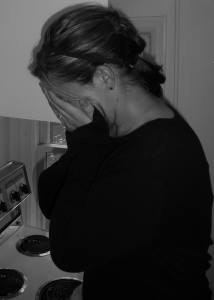 The adrenal glands are located on-top of the kidneys, and are responsible for secretion of hormones related to stress (including cortisol). When stress is perceived in a positive way and is short-lasting, it can be beneficial. In fact, recent research has suggested that individuals who are stressed but have a positive association with that stress, are healthier than individuals who have no stress at all. When on the other end of the spectrum, where you may be overly stressed with a negative appraisal of it, your health could greatly suffer as a result. When stress is taken out of the context of moderation and not perceived well, many can run into problems. Stress that is long standing can cause stress hormones circulate for longer, causing destruction and harm to one’s body. This might look like increased blood pressure, increased weight or weight gain, increased blood sugar levels, depression, anxiety, chronic pain, indigestion, and the list goes on. Your diet and lifestyle can play a large role in how your organs manage this stress and how you manage stress on a mental – emotional level. These diet and lifestyle changes may include:
The adrenal glands are located on-top of the kidneys, and are responsible for secretion of hormones related to stress (including cortisol). When stress is perceived in a positive way and is short-lasting, it can be beneficial. In fact, recent research has suggested that individuals who are stressed but have a positive association with that stress, are healthier than individuals who have no stress at all. When on the other end of the spectrum, where you may be overly stressed with a negative appraisal of it, your health could greatly suffer as a result. When stress is taken out of the context of moderation and not perceived well, many can run into problems. Stress that is long standing can cause stress hormones circulate for longer, causing destruction and harm to one’s body. This might look like increased blood pressure, increased weight or weight gain, increased blood sugar levels, depression, anxiety, chronic pain, indigestion, and the list goes on. Your diet and lifestyle can play a large role in how your organs manage this stress and how you manage stress on a mental – emotional level. These diet and lifestyle changes may include:
Dietary Changes
- Consume lean protein with every meal
- Avoid caffeine, alcohol, and high – sugar beverages such as Gatorade
- Avoid processed sugars
- Follow an anti-inflammatory diet
- Consume adequate amounts of water
- Eliminate sources of food sensitivities, or sources of inflammation, from the diet
- Include a variety of fruits and vegetables in your diet – specifically peppers, dark-green leafy vegetables, oranges, guava and papaya.
- Consume a breakfast that includes a carbohydrate combined with a protein
Many of these dietary factors are focused on balancing blood sugar levels, decreasing burden on organs for processing and digesting, decreasing stimulating foods which can trigger cortisol spikes and wear you out physically, decreasing sources of inflammation which can contribute to mental-emotional upset (i.e. depression, anxiety, stress).
Lifestyle Changes
- Eat regularly timed meals
- Practice mindful eating by taking time to eat and enjoy the food that is put in front of you, making sure to chew adequately
- Manage your stress through various methods including:
- Journalling
- Meditation
- Yoga
- Reading
- Deep breathing
- Exercising
- Adopt regular sleeping habits
- Partake in regular exercise
- Adopt a lifestyle of balance (work versus play)
- Seek a health care provider to help you to combat the effects of stress i.e. Naturopathic Doctor, Counselor, Registered Massage Therapist, Medical Doctor, etc.
Many of these lifestyle factors help one to be able to manage stress effectively and the physical effects of stress. If you are in need of help to manage stress, support your adrenal glands, combat depression, combat anxiety, or to manage the effects of stress; please consider consulting myself or another health care provider. Do not suffer alone.
Have you benefited from reading this blog? Know someone that would benefit as well? Share, Like, Comment, or Tweet this article, and let me know what you think.
Some of the information provided above may not be appropriate for everyone, please consult with your doctor before trying any of the above. If you are interested in Naturopathic Medicine and wanting a different approach to your health care needs, contact Dr. Elisha Cook ND by calling 519-537-7058 and book your appointment today!



